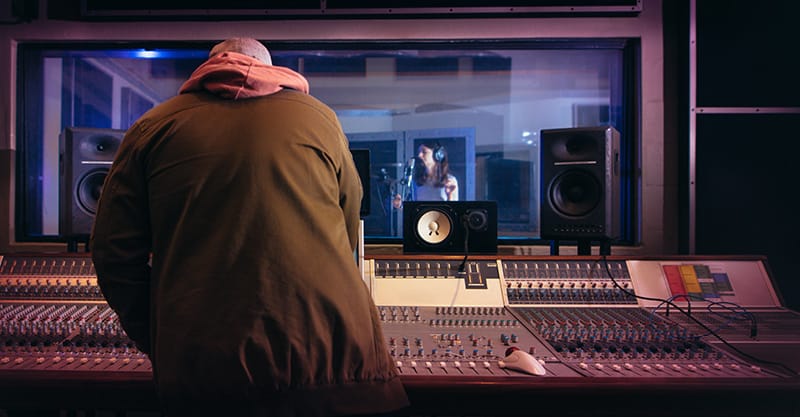
You might organise a recording session with an artist or musician, set up the required equipment, record each instrument individually, and then edit and combine recorded sounds to create a high-quality recording.
Responsibilities
Throughout your apprenticeship, you may help:
- plan recording sessions with producers and artists
- set up microphones and equipment in the studio
- make sure the volume and recording levels are set correctly
- operate recording equipment and add effects
- record each instrument or vocal onto a separate track
- mix tracks to produce a final ‘master’ track
- log recordings and other details of the session in the studio archive.
Salary
- Starting salaries for an apprentice is £17,000 per year.
- Experienced sound engineers can earn up to £40,000 per year.
Working hours
You will typically work 39 to 41 hours per week. Working evenings, weekends and bank holidays depending on customer demands.
Working environment
You could work at a recording studio.
Qualifications
Qualifications you can achieve as an apprentice studio sound engineer include:
- Level 4 Assistant Recording Technician – Entry requirements for this level include 4 or 5 GCSEs at grades 9 to 4 (A* to C) and A levels, or equivalent, for a higher or degree apprenticeship. This qualification will take 24 months to complete.
Skills
On a studio sound engineer apprenticeship, you’ll learn:
- to be thorough and pay attention to detail
- knowledge of computer operating systems, hardware and software
- the ability to work well with others
- the ability to accept criticism and work well under pressure
- to be flexible and open to change
- persistence and determination
- customer service skills
- knowledge of media production and communication
- to be able to use a computer and the main software packages competently.
Career path and progression
After gaining expertise, many studio sound engineers become freelance. However, if you specialise in a specific technical ability, you may become a music producer, studio manager, or even create your own recording studio.
